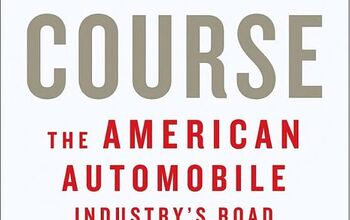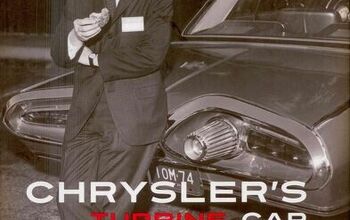Book Review: "Detroit: An American Autopsy"
(When I put this into the TTAC “back-end”, I forgot to change the author. This article is the work of John Marks, not Jack Baruth — JB)
Former Detroit News city-beat reporter Charlie LeDuff’s memoir Detroit: An American Autopsy (2013; newly out in paperback) fairly pulsates with not-quite-controlled rage, but at least he came by it honestly. A working-class native of Detroit who parlayed his talents for finding stories and for telling stories into a position at the New York Times, LeDuff quit what once had been his dream job in 2007.
After ten years (a span of time that included 9/11), LeDuff had had enough of the Times’ “intellectual mud wrestling and… oblique putdowns.” The straw that broke his back was an editor’s telling him that he spent too much time writing about “losers.” (One gets the idea that if that editor wasn’t a Brown graduate named Chauncey who was wearing a Brooks Brothers oxford-cloth shirt, he might as well have been.)
After a brief unsatisfying stint in Los Angeles, LeDuff and his wife and infant daughter returned to Detroit in 2008, so he could “chronicle the decline of the Great American Industrial City.” His timing was impeccable, to say the least.
Circling back to Detroit was instinct, like a salmon needing to swim upstream because he is genetically encoded to do so. Detroit might be the epicenter, a funhouse mirror and future projection of America. An incredibly depressed city in its death swoon.
But it could also be a Candy Land from a reporter’s perspective. Decay. Mile after mile of rotting buildings, murder, leftover people. One fucking depressing, dysfunctional big glowing ball of color. One unbelievable story after another.
Detroit is a city where homicide cops have to take the bus to crime scenes because there is no money to fix the squad cars, where firehouses have to sell their brass poles to raise money, where schoolchildren are told to bring their own toilet paper to school because politicians and public employees are feathering their own nests, and where automaker executives take private jets to Washington to ask Congress for $25 billion.
But, as the book unfolds, it becomes apparent that every bit as important to LeDuff as having a ringside seat at the implosion of his hometown was unfinished business in his family’s past and in his own past. LeDuff’s extended family includes his deceased streetwalker sister (who jumped out of a stranger’s speeding van and encountered a large tree at high speed) and his niece (the streetwalker’s daughter), who died young from a heroin overdose. He also has various brothers, one of whom is a repentant former fast-talking junk-mortgage salesman. The former mortgage pusher has just been evicted from the house he bought using the kind of surreal mortgage he had been in the business of selling. When we meet him, he and his wife are sorting and cleaning screws in a machine shop, and getting paid $8 an hour.
LeDuff’s writing alternates between the gritty particularity of a dispatch from a war zone, bouts of world-weary detached and nearly hopeless reflection, and moments of rage. There is none of Damon Runyon’s louche chic and none of Jimmy Breslin’s comical bad-guy local color in this book.
LeDuff’s subjects, including himself, often seem stunned, unable to figure out how they got to the terrible place they find themselves in. (It isn’t giving away much to tell that by the middle of the book, LeDuff has been arrested for domestic assault, spending a night in jail as a result.)
Settling in after his first day of work—the day Detroit’s young Mayor Kwame Kilpatrick was indicted for what normal people would call stealing public money—LeDuff gets his testicles groped by the wife of a member of the US House of Representatives. He also visits a dead body frozen in the ice in the flooded basement of an abandoned warehouse, spends a lot of time in homeless shelters and the coroner’s office, and is threatened by several people who are not very nice. The book includes a portfolio of photographs by Danny Wilcox Frazier. My favorite is of a nearly naked streetwalker and a trashed motorboat inside the former Packard factory.
Comparisons to Hunter Thompson have been made and are rather obvious. I think they are slightly off the mark, because Thompson was reinventing himself as a fictional character while visiting places in which he didn’t live. LeDuff just tells the truth as he perceives it, because he came from and lives in the city about which he’s writing.
LeDuff recounts the histories of Detroit, of his own family, and of the auto business with a mixture of amusement, horror, and indignation. This is not a non-fiction book about the car business, and it is not a comprehensive analysis of what ails Detroit. This is a book written by a guy who spent five years trying to figure out his own life while doing a job that often involves prying into other peoples’ deepest miseries. What keeps LeDuff from being a mere parasite is that he can still get outraged over outrages. Detroit: An American Autopsy is full of outrages and the Big Three are among them.
Record producer John Marks is a columnist for Stereophile magazine.
More by John Marks
Latest Car Reviews
Read moreLatest Product Reviews
Read moreRecent Comments
- Eliyahu Oh, a nicer looking 2025 Camry!
- Analoggrotto Sell Canada to Mexico.
- MaintenanceCosts Just here to say thanks for the gorgeous picture of Vancouver, which may be my favorite city in the world.
- TheMrFreeze I don't doubt that trying to manage a company like Stellantis that's made up of so many disparate automakers is a challenge, but Tavares asking for so much money is simply bad form. With the recent UAW strike and the industry still in turmoil, now is not the time. And as somebody with a driveway full of FCA products, I'd just like to say how much I miss Sergio and FCA. At least with him Chrysler and Dodge stood a chance of long term survival...
- TheMrFreeze None of my cars are worthy of actual summer performance tires but our daily drivers do run all-seasons from about now until November, then winter tires the rest of the year because we're well into the snow belt. I always make sure the all-seasons I buy have good winter tire performance too, just in case we get caught with a very late or early winter storm

































Comments
Join the conversation
Matt Labash of the Weekly Standard spent some time in Detroit with Charlie LeDuff and produced what I think is one of the best pieces of writing on the city in recent memory: http://www.weeklystandard.com/Content/Public/Articles/000/000/015/945aynyk.asp
This has been a fascinating strand to read. Thanks to all contributors. Lots of further reading planned. To bball etal best wishes!